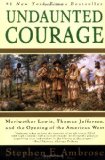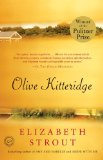Book Review: "Sweetsmoke" by David Fuller
August 15, 2008
 This review is for Sweetsmoke, a novel by David Fuller, published by Hyperion and available in September of 2008. I obtained an advance copy via LibraryThing’s Early Reviewer program. My appreciation to both Hyperion for its participation in the program and LibraryThing for making it possible. You can also visit Sweetsmoke’s Web site.
This review is for Sweetsmoke, a novel by David Fuller, published by Hyperion and available in September of 2008. I obtained an advance copy via LibraryThing’s Early Reviewer program. My appreciation to both Hyperion for its participation in the program and LibraryThing for making it possible. You can also visit Sweetsmoke’s Web site.
David Fuller’s “Sweetsmoke” builds on the familiar tradition of modern novels set in the Civil-War ravaged south: slave narratives and personal epics that, through a mixture of history and emotion, bring contemporary audiences face to face with the massive iniquities of our collective pasts. What Fuller does that’s new, however, is tweak this landscape by adding something new: a murder mystery. No, really.
Cassius, our Shakespeare-monikered protagonist, discovers that Emoline, a freed slave who rescued him from the brink of disaster and nursed him back to health (not to mention taught him to read, from his ABCs to Homer, in three weeks. Apparently.) has been murdered. Emoline’s violent demise is a vehicle for the rest of Fuller’s explorations: the conflicts of slavery, the social crisis of the South, the dreadfulness of the Civil War, and a complete rehash of the battle of Antietam. This is a big steak to chew, and it’s occasionally overcooked.
Fuller is a competent writer. Though “Sweetsmoke” is his first novel, his long experience in screenwriting gives his tone a confidence and cleanliness, if sometimes also a paucity of metaphor. The long scene that unfolds at the big “To-Do”, a multi-plantation summer gathering of slaves for dancing, drinking, fighting and loving, reads almost as an inverse of the ante-bellum Tara hedonism in the film adaptation of “Gone with the Wind.” Likely the most evocative portion of the novel, it is a rare moment when Fuller’s (thorough) historical research transcends the literary gap into meaningful sociological application and nuance–that is, the facts of slavery gain warmth and personality; his dip into inter-slave politics and hostilities felt thoughtful.
It’s not that the descriptions that flesh out the rest of the novel are akward or tedious. They’re coherent and specific, but in the end, they don’t tell us much beyond literal rendition. They don’t reach into that sensuous part of our perception. It’s as if Fuller can’t move away from visual description as something to be translated into literal scenes. WIDE SHOT INTERIOR GENERAL STORE WITH DRY GOODS, SACKS OF GRAIN, TOOLS, ETC. would be in some cases more direct and as accurate as anything Fuller is saying.
In the same screenwriting vein, the dialogue is good, and in some places great, though Fuller’s decision to give free people (black and white alike) quotation marks and strip them from slaves is a trifle heavy-handed.
Fuller has to deal with issues of preposterousness. In an interview about the book, he confesses a concern about a scene in which Cassius confronts and threatens a white slave patroller with violence. Fuller asserts that the incident was based on a real occurrence, but unfortunately, it’s his own carefully-built historical framework that forces us to confront the issue of believability–even in fiction. Fuller’s plantation-era Virginia is so tightly bound in historical themes–oppression, racism, poverty, desperation–that to invite in deviations or extradordinary circumstance is troublesome and strains our credibility. The same goes for the whodunnit aspect in respect to Emoline’s murder, though Fuller does, thankfully, treat this loosely: Cassius isn’t chasing down forensic incidentals so much as he’s chasing intuition.
Fuller’s clear enthusiasm for military history breaks through in the climactic scenes that put Cassius in the middle of Antietam. Those of similar passions might find this fascinating, but for me the entire episode seemed glaringly out of place and much duller than the rest of the story. I know enough about the battle to find that Fuller’s descriptions didn’t add much to my understanding, and the long passages seemed to waste space in an already tight novel.
“Sweetsmoke” is an enjoyable read. It’s carefully considered and driven, if heavily expository (Fuller will tell you exactly what characters are undergoing what existential crisis, every time). Read as a story, it’s taut, with nightmarish suspense leaving characters exposed and in danger, with shame and love and murder. But in the end, it doesn’t bring an epiphany.
LibraryThing Tags:
| arc, er, early reviewer, south, civil war, slavery, murder, crime, fiction, novel, read, readin2008 |
As always, see all of my reviews on LibraryThing.
Recently Reviewed
Get the Books
Read my Reviews
Related Posts
- Book Review: "Peripheral Vision" by Patricia Ferguson
December 19, 2008 - Book Review: "Firmin" by Sam Savage
December 15, 2008 - Book Review: Venetia Kelly’s Traveling Show by Frank Delaney
March 2, 2010 - Book Review: “The Tricking of Freya” by Christina Sunley
April 15, 2009 - Book Review: "Wonder Boys" by Michael Chabon
August 20, 2008






